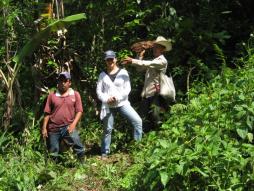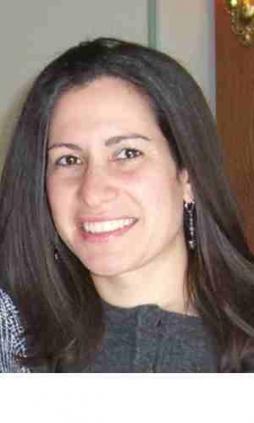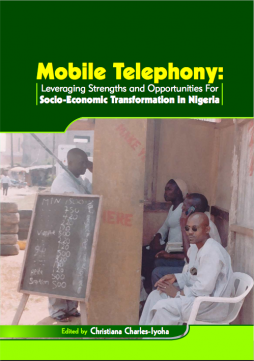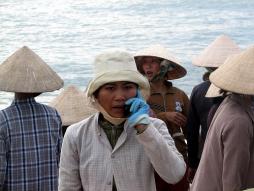Rural Issues
Posted by on Jan 01, 1970
n/a
Posted by KatrinVerclas on Sep 09, 2008
Yael Schwartzmann is a social entrepreneur, a programmer, and a mobile innovator. She developed a mobile data collection application-- DigitalICS -- to monitor smallholder coffee farmers' compliance with organic, fair trade certifications and quality requirements at a rural coffee cooperative in Oaxaca, Mexico. Yael will feature DigitalICS (pronounced Digitalix) at MobileActive08's SIMPlace. In my interview with her, we discuss why mobile phones are so useful for agricultural data collection on compliance and certification, how the application works, where else it could be used, and why she is passionate about her work.
Here is the audio of my interview with Yael; an edited transcript follows.
Posted by KatrinVerclas on Aug 09, 2008
In our series of interviews from the Bellagio conference on mobile health, here is David Sasaki's last interview with Patricia Mechael who is coordinating the mobile strategy for the Millennium Village Project. She talks about mobile adoption, user-centric design, women and mobiles, how Millennium Villages is using mobiles to improve health outcomes, and what she sees as the next big projects in mobile health.
David Oso: You have worked in a number of countries -- Egypt, Sudan, the UK, Bangladesh, Cambodia, Mozambique, Russia, Rwanda, the list keeps going on and on. How are cell phones used differently in these different countries where you've worked?
Posted by on Jan 01, 1970
n/a
Posted by CorinneRamey on Feb 29, 2008
The brightly-colored umbrellas of mobile phone vendors, selling top-up airtime and the use of mobile phones for calls, dot the landscape of urban and rural Nigeria. However, says a new book on mobile phones in Nigeria, cell phones haven't just visually changed the landscape of Africa's most populous country, but have transformed the country economically, socially, and democratically as well.
Posted by KatrinVerclas on Jan 29, 2008
We are occasionally commissioned to write introductory articles about the mobile revolution and implications for NGOs for various publications. Here is one broad overview of some areas where mobiles are deployed in civil society.
Cellphones have become the most ubiquitous communication device in the hands of human beings. There are an estimated 3.5 billion mobile phones in use and there is coverage in even remote corners of the world. Cellphones have revolutionized not just the way we work and organize within cultures and societies, but have the potential to change how NGOs (non-governmental organizatios) operate.
Mobile phones are already experimentally used in multiple ways by NGOs. We at MobileActive.org have been tracking how organizations in areas such as health and disease prevention, economic development, humanitarian relief, democratic participation, and advocacy are using mobile phones to make their work more effective and efficient.
Following are a few examples of what we have seen and where we think mobile phones have potential to be used more strategically by NGOs.




